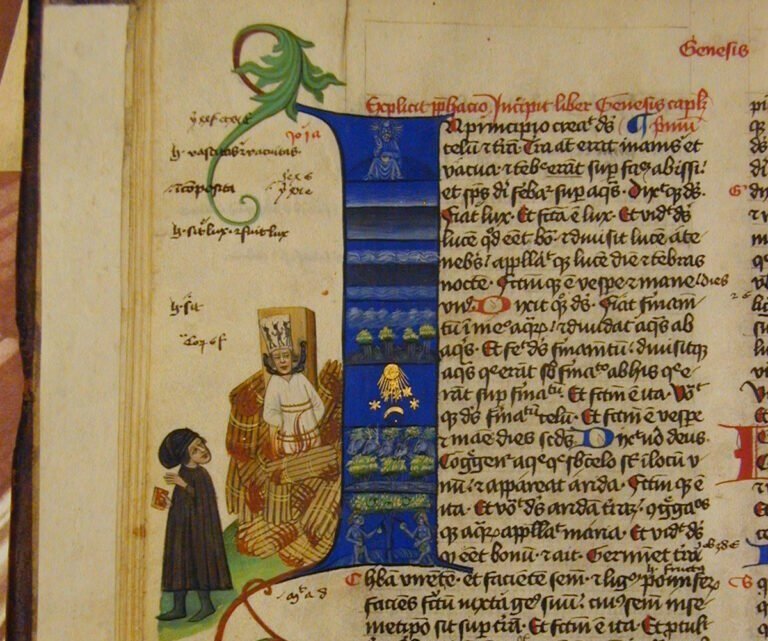Contenus
ToggleIn short
Jan Hus (vers 1370 – 6 juillet 1415), parfois sous le nom de John Hus ou John Huss, et mentionné dans les textes historiques sous le nom de Iohannes Hus ou Johannes Huss, était un théologien et philosophe tchèque qui devint un réformateur de l’Église et l’inspiration du Hussitisme, un prédécesseur clé du protestantisme et une figure marquante de la Réforme de Bohême.

Jan Hus, vers le protestantisme
Hus est considéré par certains comme le premier réformateur de l’Église, même si certains désignent cet honneur au théoricien John Wycliffe ou Marcion de Sinope. Ses enseignements ont eu une forte influence, le plus immédiatement dans l’approbation d’une dénomination religieuse bohème réformée et, plus d’un siècle plus tard, sur Martin Luther. Hus était maître, doyen et recteur de l’Université Charles de Prague de 1409 à 1410.
Jan Hus est né à Husinec, en Bohême, de parents pauvres. Afin d’échapper à la pauvreté, Hus s’est formé à la prêtrise. À un âge précoce, il s’est rendu à Prague, où il subvenait à ses besoins en chantant et en servant dans les églises. Sa conduite était positive et, semble-t-il, son engagement envers ses études était remarquable.
Après avoir obtenu un baccalauréat ès arts et avoir été ordonné prêtre, Hus a commencé à prêcher à Prague. Il s’est opposé à de nombreux aspects de l’Église catholique de Bohême, tels que leurs opinions sur l’ecclésiologie, la simonie, l’Eucharistie et d’autres sujets théologiques.
Quand Alexandre V a été élu pape, il a été persuadé de se ranger du côté des autorités de l’Église de Bohême contre Hus et ses disciples. Il a publié une bulle papale qui a excommunié Hus; cependant, il n’a pas été appliqué et Hus a continué à prêcher. Hus s’est alors prononcé contre le successeur d’Alexandre V, l’antipape Jean XXIII, pour sa vente d’indulgences. L’excommunication de Hus a ensuite été appliquée et il a passé les deux années suivantes à vivre en exil.
Lorsque le Concile de Constance s’est réuni, Hus a été invité à être là et à présenter ses vues sur la dissension au sein de l’Église. A son arrivée, il est immédiatement arrêté et mis en prison. Il a finalement été emmené devant le conseil et invité à se rétracter. Il a répondu: « Je ne voudrais pas pour une chapelle d’or me retirer de la vérité! ». Devant son refus, il est renvoyé en prison. Le 6 juillet 1415, il est brûlé sur le bûcher pour hérésie contre les doctrines de l’Église catholique. On pouvait l’entendre chanter des Psaumes alors qu’il brûlait.
Parmi ses derniers mots, Hus a prédit que Dieu en susciterait d’autres dont les appels à la réforme ne seraient pas supprimés; cela a ensuite été considéré comme une prophétie sur Martin Luther (né 68 ans après la mort de Hus).
Après l’exécution de Hus, les adeptes de ses enseignements religieux (connus sous le nom de Hussites) ont refusé d’élire un autre monarque catholique et ont vaincu cinq croisades papales consécutives entre 1420 et 1431 dans ce qui est devenu connu sous le nom de guerres hussites.
Les populations bohémiennes et moraves sont restées majoritairement hussites jusqu’aux années 1620, lorsqu’une défaite protestante lors de la bataille de la Montagne Blanche a entraîné la chute des terres de la couronne de Bohême sous la domination des Habsbourg pendant les 300 années suivantes et a fait l’objet d’une conversion immédiate et forcée. dans une intense campagne de retour au catholicisme.
Réagissant avec horreur à l’exécution de Hus, le peuple de Bohême s’est éloigné encore plus rapidement des enseignements papaux. Rome prononce alors une croisade contre eux (1er mars 1420) : le pape Martin V publie une bulle papale autorisant l’exécution de tous les partisans de Hus et de Wycliffe. Le roi Venceslas IV mourut en août 1419 et son frère, Sigismond de Hongrie, fut incapable d’établir un véritable gouvernement en Bohême en raison de la révolte hussite.
La communauté hussite comprenait la majeure partie de la population tchèque du royaume de Bohême. Sous la direction de Jan Žižka (vers 1360 – 1424) et plus tard de Prokop le Grand (vers 1380 – 1434) – deux excellents commandants – les Hussites ont vaincu la croisade et les trois autres croisades qui ont suivi (1419-1434). Les combats ont pris fin après un compromis entre les hussites utraquistes et le Conseil catholique de Bâle en 1436.
Cela a abouti aux Pactes de Bâle, dans lesquels l’Église catholique a officiellement autorisé la Bohême à pratiquer sa propre version du christianisme (hussitisme). Un siècle plus tard, jusqu’à quatre-vingt-dix pour cent des habitants des terres de la Couronne tchèque suivaient encore les enseignements hussites.
Social networks
Today, the Czech people commemorate the death at the stake of Jan Hus. The Czechs made him a national hero, an allegory of their fight against Catholic, Imperial and German oppression. He is at the origin of the Czech alphabet, of the Hussite Church and probably a precursor of Protestantism. #mythology #myth #legend #calendar July #6 #janhus
Picture
